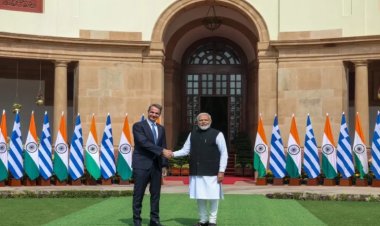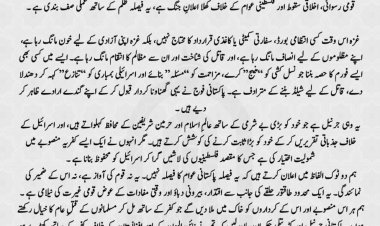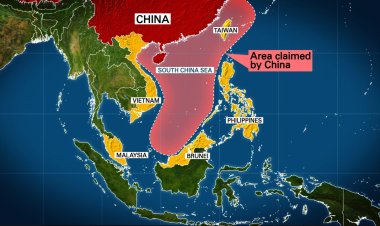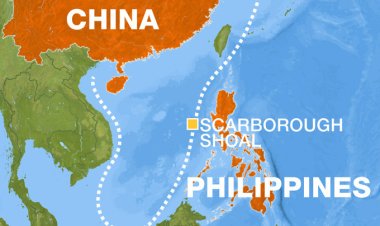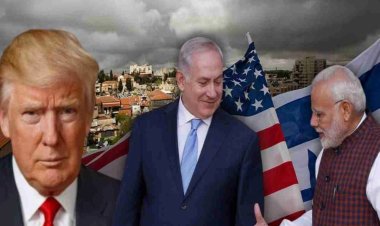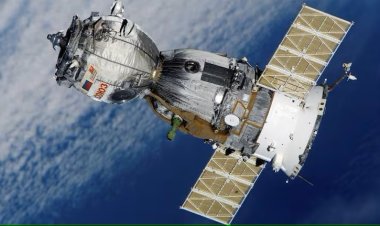The Geopolitical Repercussions of the Russia-Ukraine War on the Baltic Countries
The Baltic countries are facing a precarious security situation due to the ongoing war between Russia and Ukraine. They are also considered the frontline ally of NATO against Russia in the post-Soviet space. A question that naturally arises in public discourse is if the Baltic countries are the next victims of Russia.
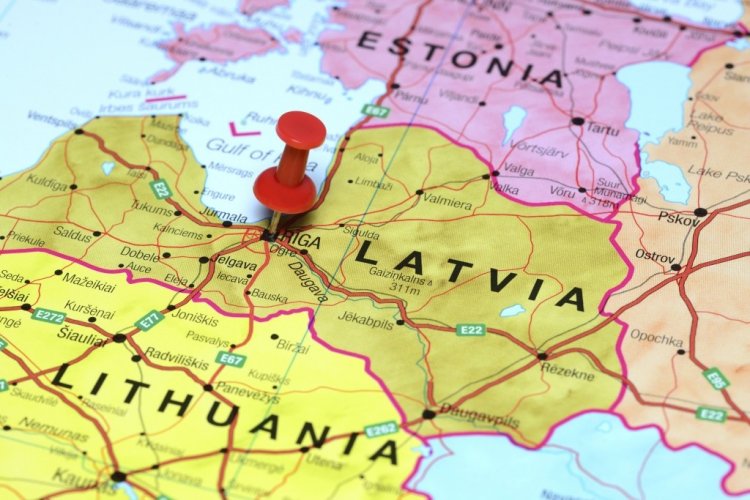
Analysis
By Dr. Nalin Kumar Mohapatra
As the Russia-Ukraine war is becoming murkier day by day, the repercussions are being felt in regional and global geopolitics. In this regard, it is pertinent to highlight that the post-Soviet countries are however feeling the heat of the war more directly because of their closer proximity to the Russia-Ukraine War Zone. Thus, the Baltic countries are not immune to the spillover effect of the Russia-Ukraine war. A crucial point to note is that like Ukraine, which pursued a pro-West policy rather than toeing the line of Russia, the Baltic countries have also developed closer relations with the West.
In this regard, the three countries joined NATO, an umbrella organisation of the West since the Cold War period. At the same time, these three countries were also admitted to the European Union in 2004. The year is quite significant because the so-called "Colour Revolution" swept across the post-Soviet space, largely sponsored by the West, which resulted in the toppling of regimes in Georgia, Ukraine, and Kyrgyzstan, which are strategically vital regions in this geopolitical space. On the other hand, the Baltic countries being admitted to the EU and NATO pursued a divergent course of action contrary to that of Russia. This created a new kind of strategic game in the post-Soviet space. The West used the Baltic as a springboard to strategize their sphere of influence in this part of the world. The security concerns of the Baltic countries are arising precisely because of their pro-Western leaning, their strategic location as well as the likely spillover effect of the war. Russia has recently cautioned the two Nordic countries, Finland and Sweden as they are planning to join NATO. This demonstrates the precarious situation in and around the post-Soviet Eurasian space. Along with this, the Baltic Sea is also assuming a critical role in the context of transportation of energy to the EU countries, particularly to Germany.
Russia is transporting its energy to Germany through the Baltic under Sea projects of the Nord Stream. This route is assuming importance because, in recent years, Russia is increasingly relying on this route to bypass Ukraine to supply gas to the German energy market. Another aspect that needs to be underlined here is that the Baltic countries are trying to reduce their dependence on Russia for energy. They are trying to diversify their sources like Norway and depend more on renewable energy sources. Though the Baltic countries are quite angered over Russia's war with Ukraine, the picture of energy independence is not quite rosy for the Baltic countries. It may be recalled here that Lithuania, Estonia, and Latvia have initiated the project to establish nuclear energy. However, this project at Visaginas Nuclear Power Plant has not made any inroads. This is largely due to the absence of any consensus among the three participating Baltic countries. Along with this, the lack of domestic consensus over nuclear energy is another factor that contributed to the likely reason that propelled Lithuania to abandon its policy on nuclear energy. However, growing energy forced the Baltic countries to have some sort of dependent relationship with Russia. This can be envisaged from the fact that despite a lack of amicable relationship between Russia and the Baltic countries, they used to import energy from Russia in the form of both, fossil fuels and nuclear energy. Though the recent announcement of the Baltic countries to ban Russian energy may alter the pattern of their existing relationship.
Though energy is one such dimension where one can notice the implications due to the Russia-Ukraine war, it has also been observed that the Baltic countries are apprehensive of their security. There is a justification for security apprehensions from the Baltic countries as they were the first to join NATO in the post-Soviet space. In this regard, it is pertinent to mention that in the ongoing conflict between Russia and Ukraine, one of the most contentious issues is the issue of NATO'S Eastward expansion.
As it has been highlighted, all the three countries are raising their apprehensions over President Vladimir Putin's move in recent years. Though it is a fact that unlike Ukraine, which is not officially part of this Western military alliance organisation, these three countries can be protected by NATO as Article 5 of the NATO Charter underlines that “the Parties agree that an armed attack against one or more of them in Europe or North America shall be considered an attack against them all.” In this regard, one has to highlight that since the outbreak of war between Moscow and Kyiv, the Baltic countries are demanding strong measures against Russia. Lithuania's Prime Minister, Ingrida Simonyte stated “to rethink the whole security situation [ of Europe] if these Russian troops and weapons are here to stay.”
The US Secretary of State, Anthony J. Blinken during his visit to Riga in Match 2022 stated that “over the past 30 years, the Baltics have formed a democratic wall that is now standing against the tide of autocracy that Moscow is seeking to push further into Europe.” Blinken talked about the deployment of US troops and advance military weapons in the region to provide security and protection to them in case of Russia's advances towards the Baltic. However, the apprehensions raised by Baltic countries can be understandable being located in the vicinity of the present Russia-Ukraine war zone. This can also be palpable as President Putin vows to carry out a nuclear attack against the two Nordic countries - Finland and Sweden - if they join NATO. This is an indirect warning to the Baltic countries as they are a strong votary of the joining of these two Nordic countries in the West-sponsored military bloc, NATO. The recent visit of the three Presidents of the Baltic countries along with the NATO partner Poland, considered to be the frontline ally of Ukraine, indicates that there may be a new kind of strategic realignment as indicated by President Gitanas Nauseda of Lithuania during the interaction with Volodymyr Zelensky that “the fight for Europe's future is happening here.” In addition to this, the visit of Britain's Prime Minister Boris Johnson to Ukraine as a show of solidarity with Ukrainian President Zelensky is an indication that the West is augmenting its troops to launch a counterattack against Russia.
There is an indication that the President of The United States of America, Joe Biden will also visit Ukraine to reaffirm the West's total support for Ukraine. The point that needs to be underlined here is that in case of a further escalation of war between Russia and Ukraine, and the West's support to Kyiv, the Baltic countries are also going to suffer a lot because of their geostrategic location. Though Lithuania's Defense Minister Arvydas Anusauskas stated “NATO's forces in our region have doubled. This presence keeps growing. May will see the peak. For how long these forces will stay in Lithuania will depend on the security situation in the region.” This reflects the fact that the military confrontation in the post-Soviet Eurasian space, particularly in the Baltic region, may galvanize the situation further. It has also been reported that the Baltic countries along with the NATO allies are planning to conduct joint military exercises on the Baltic Coast. One may recall here that in the initial days of the ongoing war, the Baltic countries agreed "expeditiously to hand over the security assistance to Ukraine." Russia is swiftly responding to the military adventurism of NATO by augmenting its position in the Baltic Sea. Similarly, Moscow also augmented the “Bastion coastal defence missile systems” in the Baltic Sea coast of Leningrad and Kaliningrad to control the 600 long coasts of the Sea, which is under the suzerainty of Russia. It has been observed that the port of Kaliningrad is becoming crucial for strategizing Russia's war against Ukraine. Besides this, it is one of the key ports used throughout the year. The significance of this Sea can be understood from the fact that since the beginning of the 20th century, Russia has deployed the Black Sea Fleet to protect its vast seacoast. Because of their strategic location, and their pro-West leaning (as NATO Member states) in the post-Soviet space, the Baltic countries are going to face the consequences of the Russia-Ukraine war. In case the war prolongs, the spillover effect of the war will be felt in the Baltic countries. This may further escalate into a Russia-NATO war and the Third World War will be imminent.
Disclaimer: This article is author’s individual scholastic contribution and does not necessarily reflect the organization’s viewpoint.


